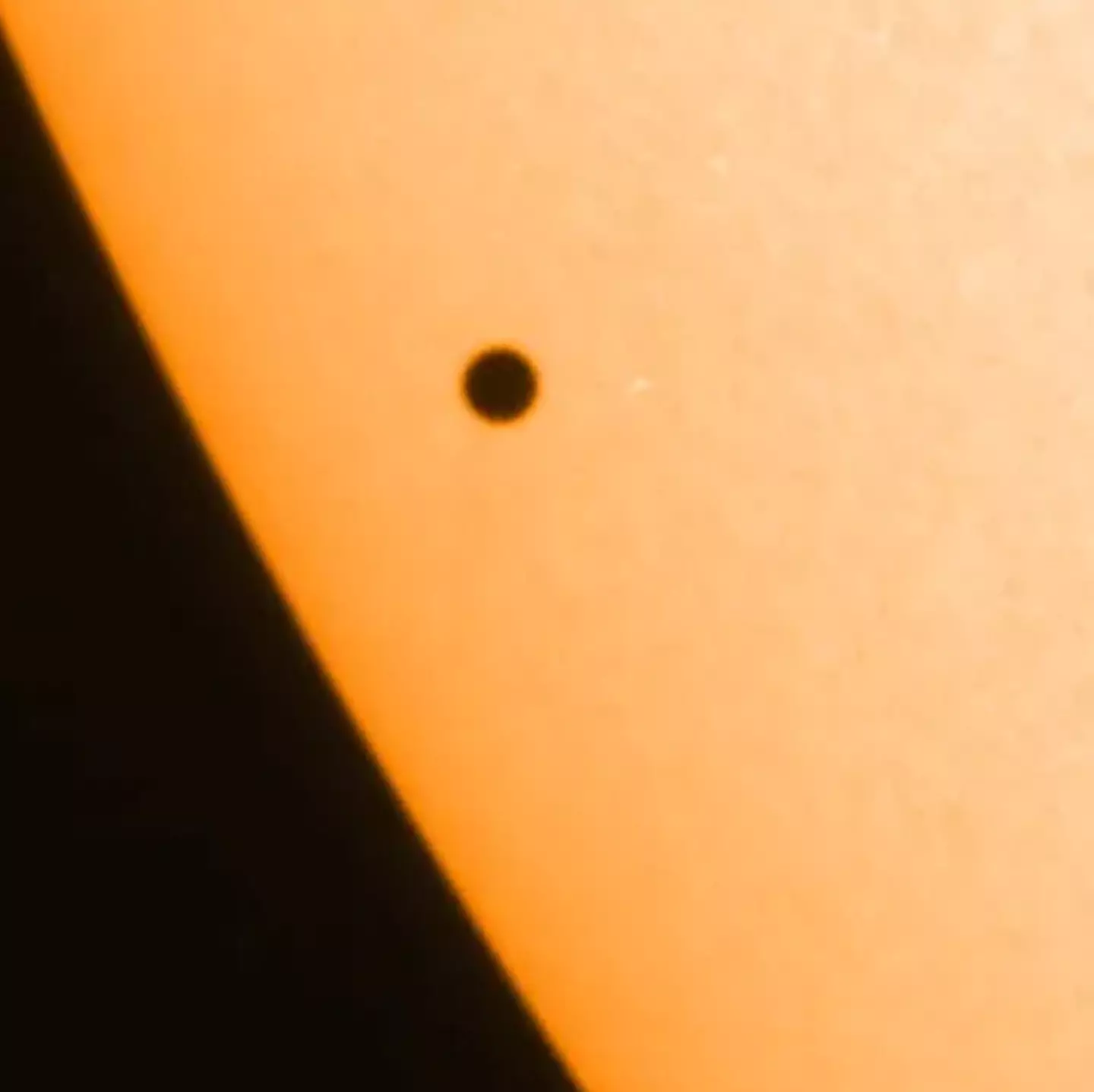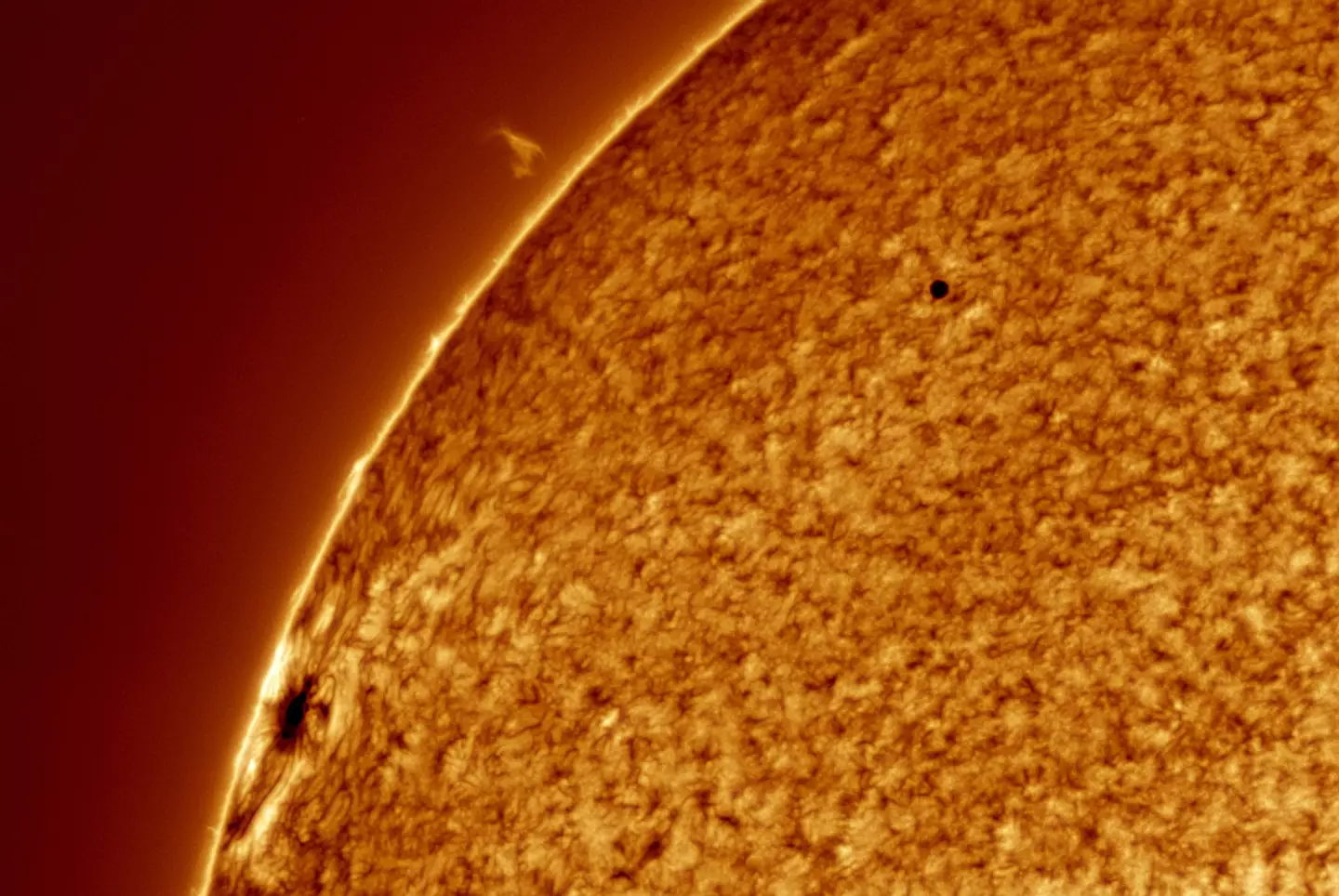
Sometimes a photo comes along that perfectly shows the sheer scale of our solar system - and pretty much the whole universe we live in, too.
One photo has been doing the rounds on Reddit, and it continues to blow people's minds.
It shows the Sun through a telescope with a small black dot in front of it - which is actually, in fact, Mercury.
That's right, it's a planet that's around a third of the size of Earth, but is so far away (and, in turn, so far away from the Sun) that it looks like a speck of dirt on your screen, while the Sun is so massive that it's not even fully captured.
Those who've got a grip on their knowledge of our solar system will remember that Mercury is the closest planet to the Sun, but just because it's closer than any other doesn't mean it's actually within touching distance.
Advert
In reality, Mercury is on average around 58 million kilometers away from the Sun.
One Reddit post showing this unbelievable snap has a whole host of comments beneath it, too, as people react to the scale of what they're seeing.

In classic Reddit style, the most upvoted comment is actually a joke about using the internet nowadays. It quips: "The x button on those ads," referencing pop-up ads that give you the tiniest of buttons to hit to close them.
Advert
Further down the comments section, there's another that is far more serious - in fact, it's a bit of a physics lesson.
It explains: "To give you an idea of just how big that thing is: Through fusing Hydrogen into Helium, the Sun loses about 4.3 million metric tons per second. And it has for billions of years and will for billions more."
That's informative enough already, but the comment actually goes on even further: "To give you an idea of just how much energy that is, if you do the math and accounting, and get all E=MC2 about it, slightly less than one single gram of matter decimated Hiroshima when they dropped the bomb in WWII. The Sun releases the energy of 4,300,000,000,000 Little Boys per second."
Well, that should leave you with a bit more of an understanding of the wild scale of the cosmos, all from a simple photo.